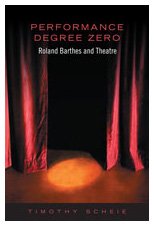

Most ebook files are in PDF format, so you can easily read them using various software such as Foxit Reader or directly on the Google Chrome browser.
Some ebook files are released by publishers in other formats such as .awz, .mobi, .epub, .fb2, etc. You may need to install specific software to read these formats on mobile/PC, such as Calibre.
Please read the tutorial at this link: https://ebookbell.com/faq
We offer FREE conversion to the popular formats you request; however, this may take some time. Therefore, right after payment, please email us, and we will try to provide the service as quickly as possible.
For some exceptional file formats or broken links (if any), please refrain from opening any disputes. Instead, email us first, and we will try to assist within a maximum of 6 hours.
EbookBell Team

4.3
98 reviewsThroughout his career, famed critical theorist Roland Barthes (1915-1980) had a complex and often uneasy relationship with theatre and performance. From his early theatre criticism, through his abrupt and enigmatic silence on theatre, to the theoretical 'stagings' of his thought in the 1970s, Barthes committed several stunning reversals with his opinions on theatrical performance.
In Performance Degree Zero, Timothy Scheie argues that Barthes's body of work must be considered a lifelong engagement with theatre. Exploring his changing critical methodologies, Scheie provides a new understanding of the rapid shifts in critical modes Barthes traverses, from a Sartrean Marxism in the 1950s, through semiology, to French post-structuralism and the mournful introspection of his later years. The theatrical figure illuminates Barthes's accounts of the sign, the text, the body, homosexuality, love, the voice, photography, and other important and contested terms of his thought.
Performance Degree Zerooffers the first comprehensive account of Barthes's lifelong engagement with theatre and performance and fills a significant gap in Barthes criticism. It is essential reading for all Barthes scholars, theatre historians, and performance theorists.